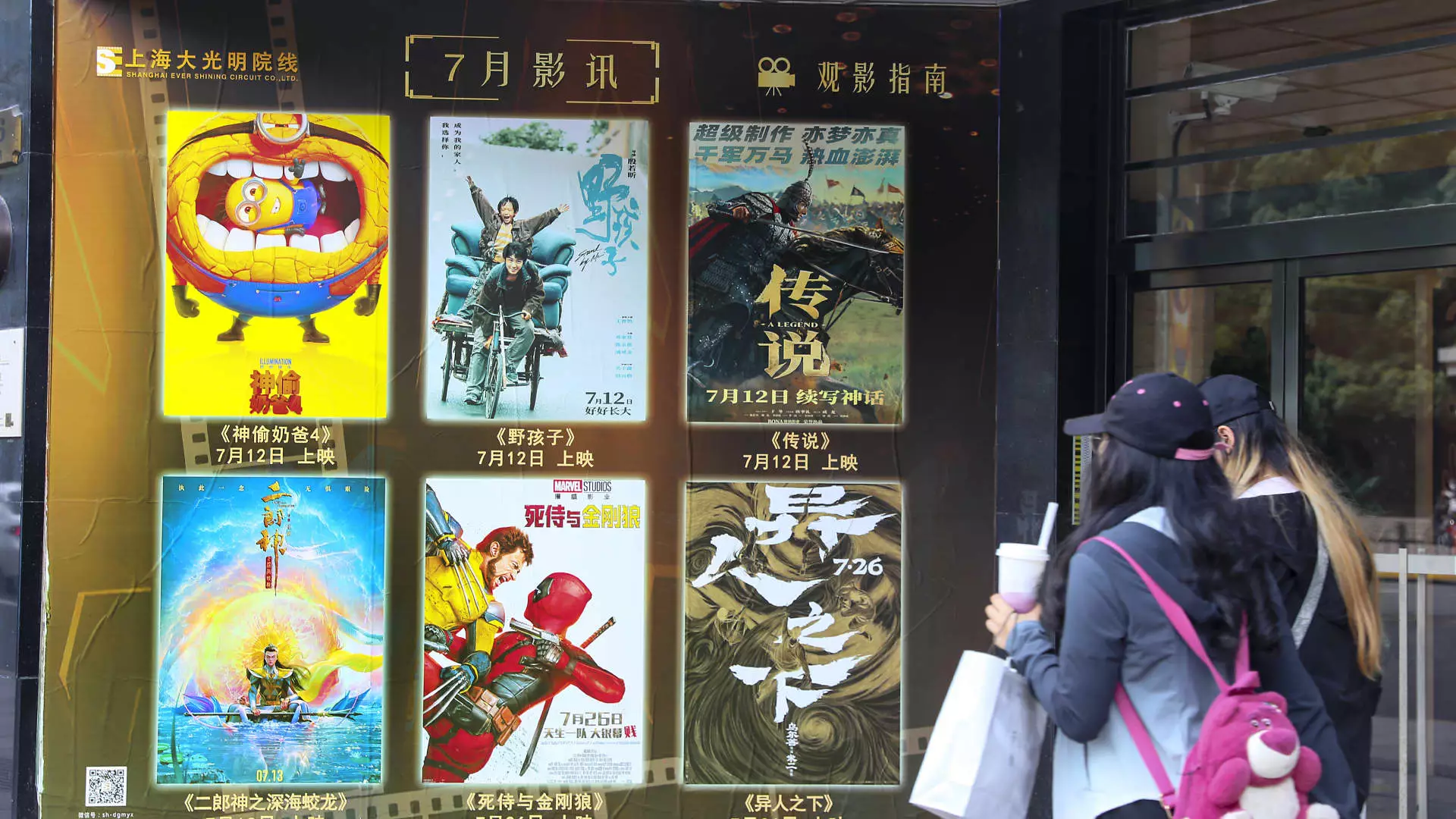Hollywood, the once-unstoppable titan of global cinema, is now feeling the weight of economic sanctions and trade wars. The increased tariffs imposed by President Donald Trump on Chinese imports have ignited a fierce backlash from China, which has begun curbing the flow of American films into its lucrative market. This trade conflict raises troubling questions about the long-term viability of Hollywood’s dependence on the Chinese box office—once a reliable fountain of revenue, but now receding like the tide.
As studios like Disney and Warner Bros. Discovery respond to the shifting landscape, their stock values have plummeted, marking a stark decline in investor confidence. The glitzy facade of Hollywood is cracking under pressure as these entertainment giants grapple with a volatile market environment. What was once a golden opportunity for financial windfall has morphed into a minefield of uncertainty, with studios struggling to calculate the value of a market they cannot reliably predict.
From Profits to Pitfalls
The narrative has shifted significantly in recent years. In a bid to charm Chinese audiences, Hollywood has tailored many blockbuster productions to fit the tastes and preferences of this international demographic. However, the Chinese film industry has flourished, leading to an audience that increasingly favors home-grown films. The insights from Ann Sarnoff, former CEO of Warner Bros., lay bare the grim reality: U.S. studios can no longer automatically count on strong box office returns from China. The tantalizing prospect of past profits has vanished, replaced by a dismal calculus where projections aren’t even included for potential earnings from this once lucrative market.
The U.S.-China Film Agreement, which expired in 2017, compounded this crisis by limiting the number of American films released annually in China. As Aynne Kokas, a University of Virginia professor, pointed out, while Hollywood has dithered in trade negotiations, the Chinese domestic market has been growing rapidly, producing its own blockbusters that often outperform American imports. A film’s commercial success, like “Ne Zha 2,” blazing trails by raking in over $1 billion in a single territory, crystallizes the new reality: the center of cinematic gravity is shifting eastward, raising alarm bells for Hollywood’s traditionalism.
The Dark Cloud of Currency Loss
The economic consequences for Hollywood are multi-faceted and interwoven with broader trends in currency valuations. The weak dollar presents a paradox: while it makes international box office returns appear more favorable, the cost of doing business abroad equivalently increases. Hollywood’s global ambitions are thwarted by this currency conundrum, further complicating the financial landscape for studios.
These rising operational costs compound the already precarious nature of U.S.-China relations. Amid the turmoil of currency fluctuations and ongoing tariff negotiations, executives and stakeholders are left grappling with uncertainty about Hollywood’s place in a world increasingly dominated by competing voices and rising nationalistic sentiment. Each day brings new dialogues, characters venturing into this sprawling geopolitical drama whether they like it or not.
Hollywood’s Existential Crisis
As the curtain closes on the era of easy profits and predictable blockbuster hits, the film industry is entering an existential crisis. The behemoths of Hollywood risk becoming shadowy figures in a tale of fading glory if they fail to innovate and adapt. With the implications of economic sanctions ricocheting across the studio lots, it begs the poignant question: can Hollywood rediscover its creative spark in a climate that seems increasingly hostile?
The path ahead is fraught with challenges, but perhaps therein lies the potential for revival. Embracing authentic storytelling, engaging more deeply with international narratives, and recognizing the shifting tides of audience preferences may offer a glimmer of hope. This is not just about financial recovery—it’s about rekindling the art of filmmaking in a world that demands authenticity, relevance, and creativity.
If the industry fails to rise from the debris of globalization’s conflicts, it may find itself relegated to mere nostalgia—a relic of yesteryears when it was once the unrivaled leader of global entertainment. The next act will reveal if Hollywood can pivot from a narrative of decline to one of renaissance, revitalizing itself in the crucible of adversity.


Leave a Reply